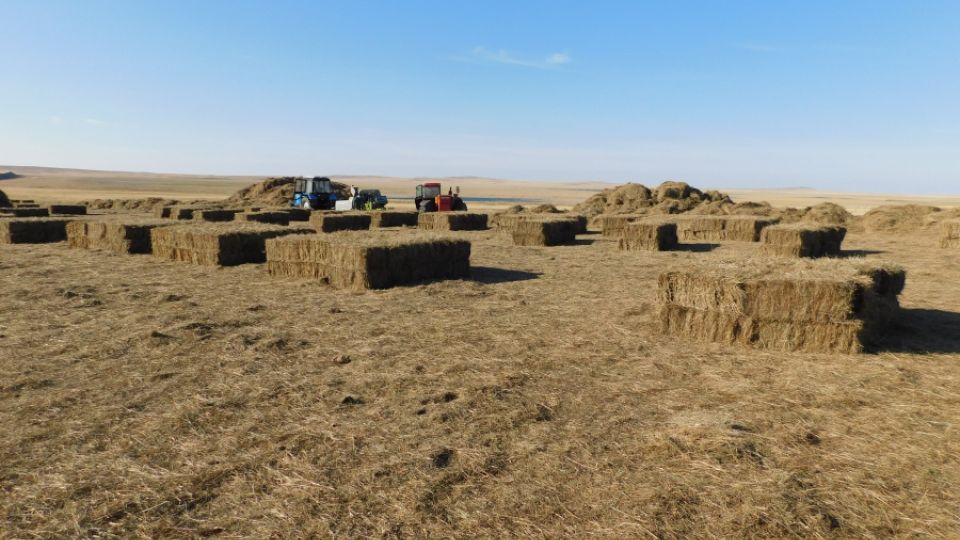The Intergovernmental Panel on Climate Change (IPCC) released its 6th Climate Change Assessment Report in March. Experts emphasize that urgent action is needed to combat the climate emergency in various parts of the world, including Central Asia.
The report assesses the state of climate and the impact of human activities on the environment. It includes data on scientific, technical and socio-economic knowledge about climate change. The synthesis report should help in the process of making political decisions to combat climate change. The report shows that greenhouse gas emissions (GHG) from human activities are responsible for a warming of about 1.1 °C since 1850-1900. But it's not just about temperature!
Climate change is causing many changes in different parts of the planet, all of which will increase with further warming. They include changes in humidity and dryness, winds, snow and ice, coastal areas and oceans. For example:
- Climate change intensifies the water cycle in nature. This entails more intense precipitation, flooding, and drought in many regions.
- Climate change affects precipitation patterns. At high latitudes, precipitation is likely to increase, while it is projected to decrease in much of the subtropics.
- During the 21st century, sea level rise will continue in coastal areas, leading to more frequent and severe flooding in low-lying areas and coastal erosion. Extreme sea level events, which used to occur once every 100 years, maybe much more frequent by the end of this century.
- Further warming will intensify the melting of permafrost and the loss of seasonal snow cover and melting glaciers.
- For cities, some aspects of climate change may intensify, including heat waves (since urban areas tend to be warmer than their surroundings), flooding from heavy precipitation, and rising sea levels in coastal cities.
This further increases risks to human health and ecosystems and worsens national economies. Climate-induced food and water shortages are expected to increase as warming increases.
Fair solutions are available – and fairly easy!
Climate justice is important because those who have contributed the least to climate change suffer the most. Therefore, developing quick and fair plans to phase out fossil fuels is necessary. The top priority for all governments must be increased investment in renewable energy and energy efficiency measures! In doing so, wealthy countries must significantly increase their share of international climate change funding.
The solution is climate-resilient development. This requires climate change adaptation measures and actions to reduce greenhouse gas emissions. There are many effective, highly complex and simple solutions to reducing greenhouse gas emissions and adapting to climate change, and they are available now.
Agriculture, electricity, transportation, and industry changes can help reduce greenhouse gas emissions. And these solutions are both countrywide and local, with other benefits. Access to clean energy and technology improves health, especially for women and children; low-carbon electrification, walking, cycling and public transport improve air quality and health. That said, it's important to understand that the economic health benefits of improved air quality will be about the same as the costs of reducing or preventing emissions.
How does climate change affect Central Asia and Kazakhstan?
Scientists predict that our region will face such climatic challenges as desertification, increased fire hazards in forest and steppe areas, reduction of glaciers, and deterioration of conditions for the development of agricultural areas. Natural disasters such as landslides, mudslides, avalanches, floods, hurricane winds, frosts and droughts will increase in mountainous regions. Also, climate change leads to deterioration of soil quality.
Kazakhstan is already beginning to experience shortages of water resources, and according to forecasts, by 2040, it may face serious water shortages. Since almost all sectors of the economy depend on water, GDP may decrease due to water scarcity in the country's regions.
One of the issues of the IPCC report is the adaptation of local communities to climate change, which are particularly vulnerable and do not understand all global processes.
The IPCC is an international body for assessing the state of scientific knowledge related to climate change. The IPCC was created in 1988 by the World Meteorological Organization and the United Nations Environment Programme to provide policymakers with regular assessments of the scientific basis of climate change, its impacts and future risks and to develop solutions to this problem. Hundreds of leading scientists from around the world contribute to the IPCC reports!
The full report is available in English on the IPCC website.

See also:
- “Climate Change, 2021. The Physical Science Basis. Summary for policymakers” (in Russian)
- Comments on the Central Asian experts’ report: “CAN EECCA press release on the release of the IPCC Sixth Assessment Report”







